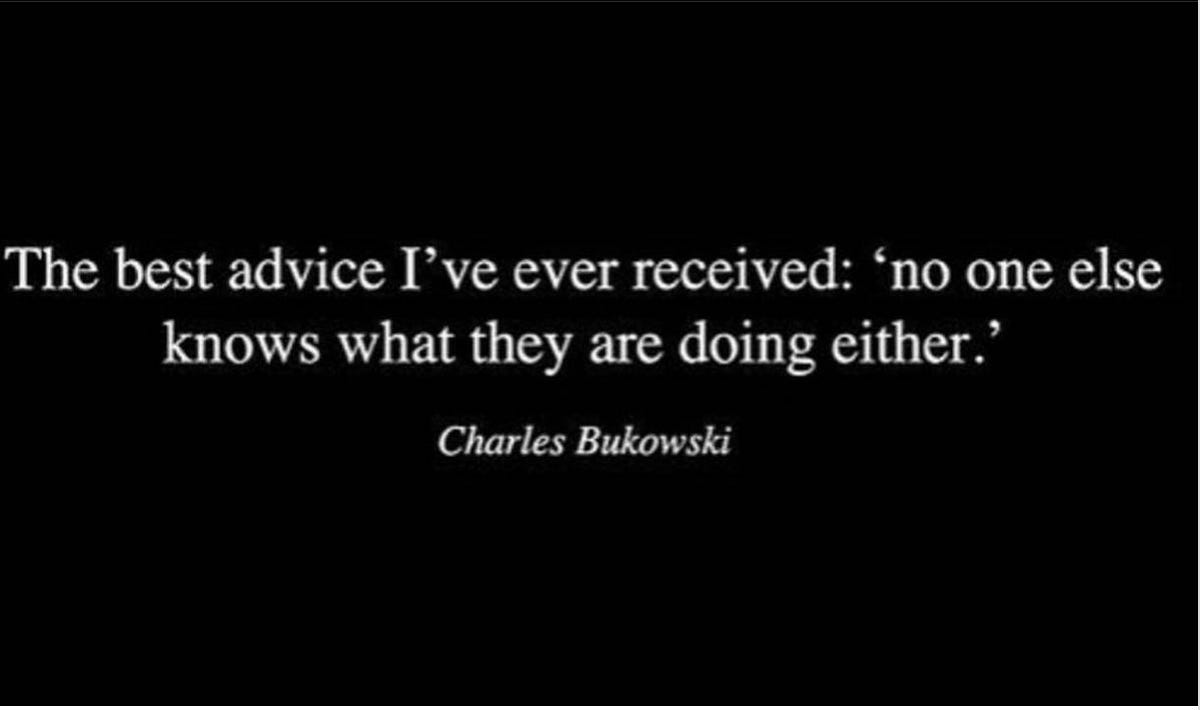Are you a 'hobbyist' or a 'serious writer'?
Problematic advice to young writers & some links to give you comfort & help you keep going.
An email landed in our inbox a couple of weeks ago. It was from someone whose teenage daughter had just received some advice from a writing tutor. The advice was this:
“If you are still just fitting writing in around everything else in your life, you are a hobbyist and not a serious writer and you shouldn't expect to ever be very good at writing.”
Not only had this advice put our aspiring teen off writing, it triggered something in her mother - and in me. Am I a serious writer? Will I ever be any good at writing? I have a hunch that these feelings of doubt and uncertainty have plagued you too.
‘Advice’ like this can have a particularly damaging effect on young people trying their hardest to juggle the demands of school work, exams and life. But it’s not just teens. This kind of advice can destroy confidence and the ability to keep going - however old and experienced a writer we are.
If you’ve ever been knocked off course by writing advice, you might find my reply helpful (if so, please hit the heart) and big thanks to the writer’s mum for allowing us to share.
I’d love to hear what problematic advice you’ve been given and what advice you would offer to other writers – leave a comment below.
Dear writer
I am absolutely seething on behalf of you, your daughter and the countless other teens who have read that advice, or similar, and been put off writing. I have many thoughts, but I want to start by saying that writing advice is often given in good faith. The person offering advice is genuinely trying to help by sharing advice that has worked for them.
Therein lies the problem! I take great comfort in this quote from the Harvard psychologist Ellen J Langer:
“The rules you were given were the rules that worked for the person who created them, and the more different you are from that person, the worse they’re going to work for you.”
Langer offers a guide for writing and for life as it encourages critical thinking. When we are offered advice it gives us permission to question it, to consider who offered that advice and in what ways they are different from us. Yes, it can be helpful advice to prioritise writing but that’s not possible for many of us. Actually, all that is possible is ‘fitting it in’.
All writers need to write as they are now, with their life and all the messy complicated mix of priorities it brings.
However, if your daughter and other writers have been put off, even that might seem too much – fitting an extra task in an already jam-packed schedule can be a burden. I suggest reconnecting with the joy of writing, which is after all what a hobby is – an activity done regularly in leisure time for pleasure. So much research on grit, persistence and resilience comes from a place of discovery found in a hobby or a side project. We never know where it will lead us and what it will teach us.
In building a habit, researcher BJ Fogg says “we change best by feeling good not by feeling bad.” I have found that enjoying writing fuels more writing and more writing leads to good writing. Writing craft takes deliberate practice (which is hard work) but writing for pleasure is a good place to start building a practice; the effort becomes the fulfilment as we seek to improve.
Thanks again for reaching out and I hope this helps. The world needs your daughter's writing and of teens like her.
With all best wishes, Bec
Great advice from Charles Bukowski via Eric Barker @bakadesuyo on Instagram
Link round-up
In other replies to feedback, I long to have the juicy wit and brevity of horror writer Shirley Jackson who in July 1957, replied to a letter from Mrs. White, “If you don't like my peaches, don't shake my tree. Sincerely, Shirley Jackson.” More choicely worded replies via Letters of Note.
If you like an advice letter, George Saunders’ reply to a ‘depressed writer’ who feared mediocrity is absolutely excellent and the encouragement we all need to hear.
However, not everyone loves Mr Saunders. Read Shalom Auslander’s Fetal Position on the dangers of Substack for the chronically low self-esteemed.
To be a writer. “rejection is a part of writing, and someone saying no should not derail you from something you want to do.” Balanced advice on persistence from Notes From A Small Press To Be A Writer; Or, The Need For Further Rejections.
Mason Currey is running #Blocktober again - a month of themed posts about creative blocks. Always funny, relatable and helps you feel less a lone - read his kick off post Power doesn’t answer to the will.
Zadie Smith has been busy promoting her latest novel (her fifth book) and she “had to face the fact I am no longer just getting started.” If one of the finest, most critically acclaimed and beloved writers feels that, I think it should all gives us comfort that our doubt is part of the process. Listen to her Talk Easy podcast interview.
The Character Lab’s playbook on developing grit: passion and perseverance for long-term goals.
If you like Angela Duckworth’s grit you’ll love her discussion on No Stupid Questions podcast How Can You Be Kinder to Yourself? And if you want to dive into the research, explore the short self-compassion scale from Dr. Kristin Neff.
The wise and ever-comforting Arthur C. Brooks on Kindness: How to break the negative feedback loop that can make us act mean - register to read on The Atlantic.
Finishing off with our tip of the week: Make writing less of a priority in your life.








Genuinely appalled at these comments from the writing tutor! With it being so difficult to make a living from writing, so many people will have to take on something else just to pay rent. I'm sure we'd all love to sit and do it full time but that's fantasy land. How much better to say to them that they should aim at consistency of time, maybe in small chunks, and that persistence is a great tutor for development and improvement. Ugh.
A "hobbyist" or "a serious writer"?
This reminds me of my Dad (may he rest in peace) when he asked me, "Why do you write?". I replied, "Because I have something to share... it may make a difference to at least one reader." So, what does that make me: a hobbyist or a serious writer? I write when my thoughts crystallize and I'm moved to pen them down. Sometimes, I don't get to at will due to other responsibilities. I am serious about getting those helpful thoughts clearly across. But it may take my "sweet time" writing them down. My thoughts come out "right" only when I am relaxed and happy. At least I think so. So, which am I?